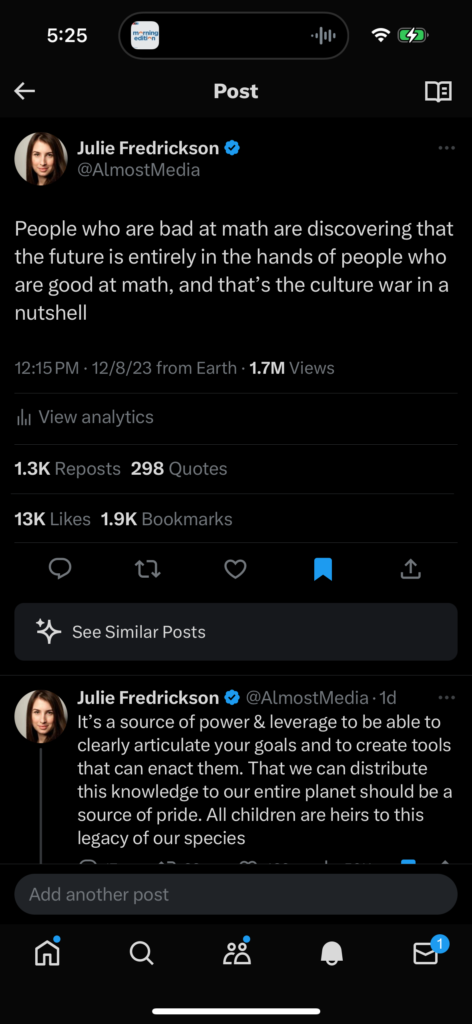As part the part of Twitter called TPOT comes into its own power the topic of resource allocation and how to route projects to sources of capital game up with Brooke Bowman of VibeCamp. It is a key question for Network State like entities that will need to navigate social ties.
I want to share how I do it as I’ve rooted some amount of capital across very different communities. I do it with some sets of intuitions I’ve gained from existing in a very powerful network of interests that are “The Silicon Diaspora” which is a syncretic coalition.
Much of it comes down to very specific context of what others are looking for in terms of outcomes. Investors with a specific thesis are much easier to work with for this reason. I try to express mine clearly at chaotic.capital and express myself actively through revealed preferences. I assume nothing is personal & everyone is working with some amount of emotional reactivity as it’s a human business.
A lot of it comes down to knowing who is a node in your network that can redirect it to someone who believes their resources can see a good return on their goals that are varying levels of abstract and personal. Skills and passions vary and this is good. It’s a mix of social capital, actual capital, and attention and it’s a giant game of inference
Some folks very good nodes and quite open to a range of different types of projects. Sometimes it’s just as simple as asking if they know someone who knows someone. I see a lot that isn’t in my own thesis but it’s in my own interest to pass it to others for whom it might be. The ecosystem approach has maximum strength when it’s played as a multi-agent pro-social game.
Also you almost never know someone’s full history so taking any reaction super personally is something I find to be too much for my own emotions. And I know a lot of history so if I can’t do it I try to make the presumption others can’t either. Be kind but clear.
That helps avoid a lot of accidental feuds that otherwise can ignite if you try to be delicate. I find transparent assessments of my own incentives goes a long way if I express it as part of my own reason for aligning. This is how I’ve worked with communities as diverse as back to the land doomers and crypto futurists to effective acceleration.
This is a fancy way of saying I don’t think “gossip” aka information sharing is actually bad but part of the empathy process of understanding what people want to work on and pay attention to in how they marshal their capital. You intake the values of your coalition and find shared ground. You keep their confidences by expressing collective goals. I try not to overweight my goals in that process. You have to do what’s right knowing outcomes are uncertain.
Showing you understand their context, their fears and their reputations concerns helps you. An act we denigrate in popular culture actually helps you to deepen the relationships as each signifier breaks down space between two people and builds trust. So don’t knock gossip. It has evolutionary, societal and individual benefit. Just remember the ultimate outcome is about bringing people closer.
Day 146 Gossip
I believe we are in an era where individuals can exercise significantly more agency because of the high leverage nature of the tools available to us. We owe much of this to information access and that is a wide coalition of people who are exercising basic freedoms to self determine because of this march of technology.
It’s my belief that freedom to compute is freedom of speech and these digital communities represent what I hope is more effective self governance through decentralization. We must build up the social trust amongst each other by showing we value each other’s interests. I believe this to be the right thing to do for each other. It’s the human thing too.
